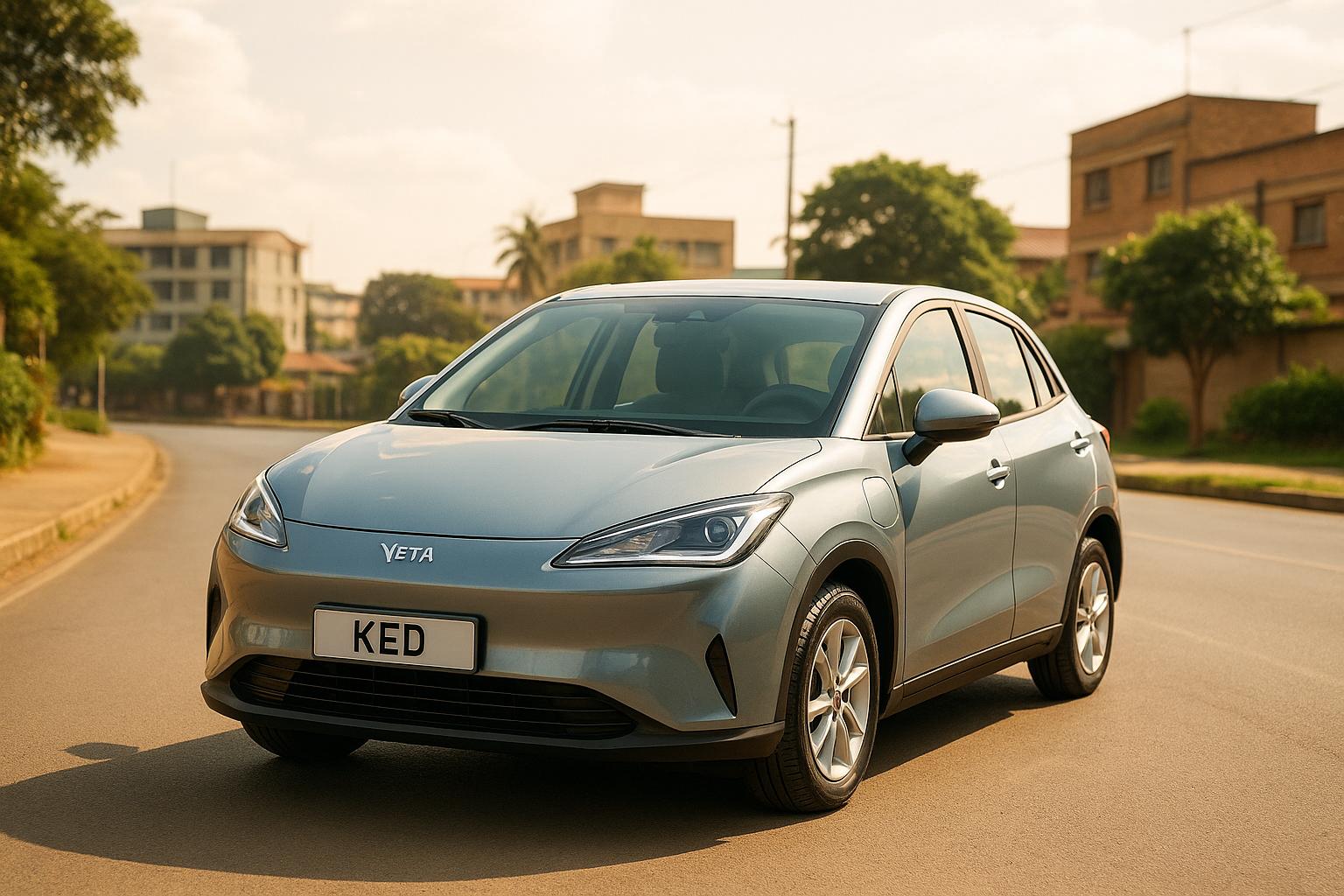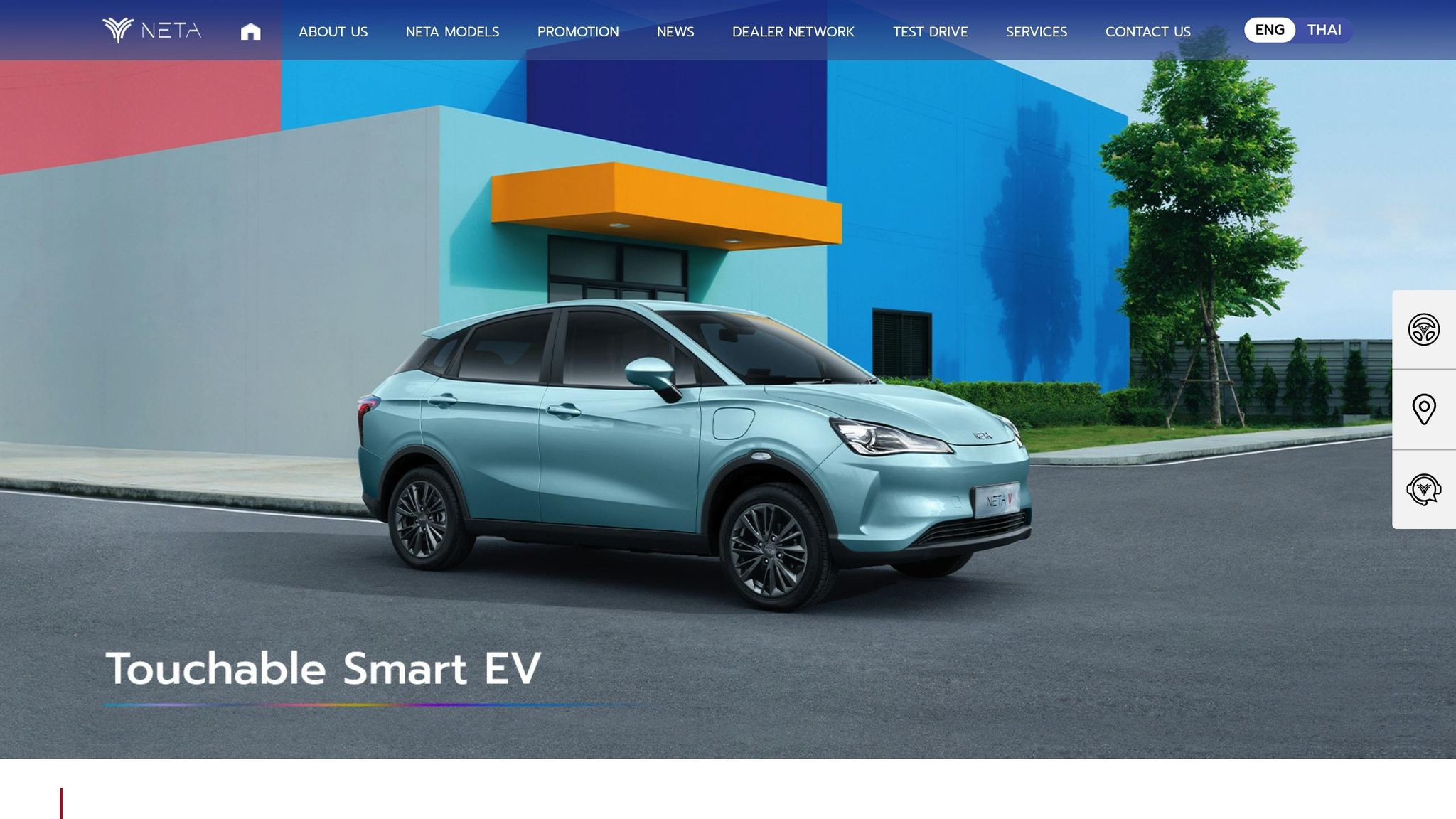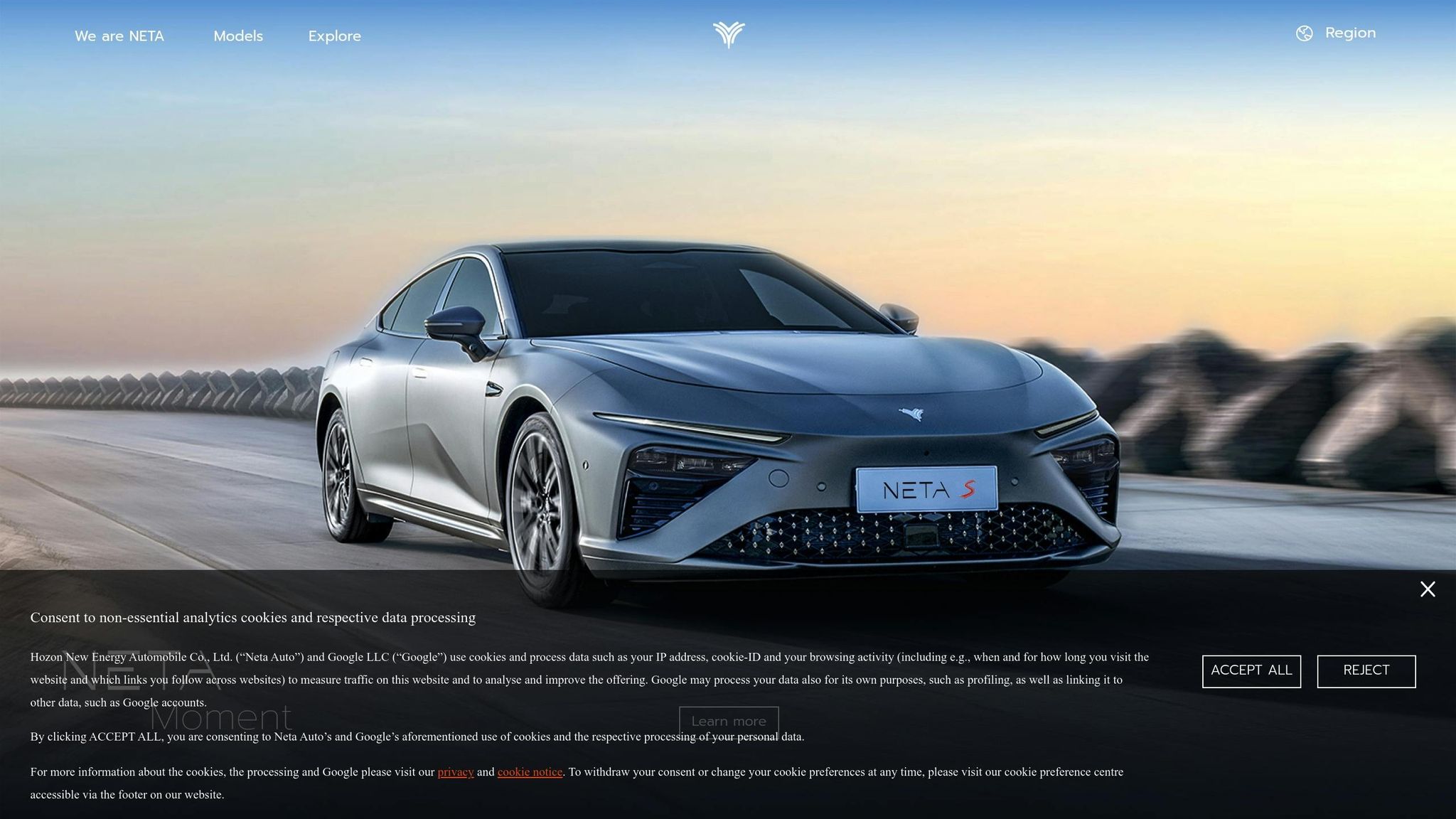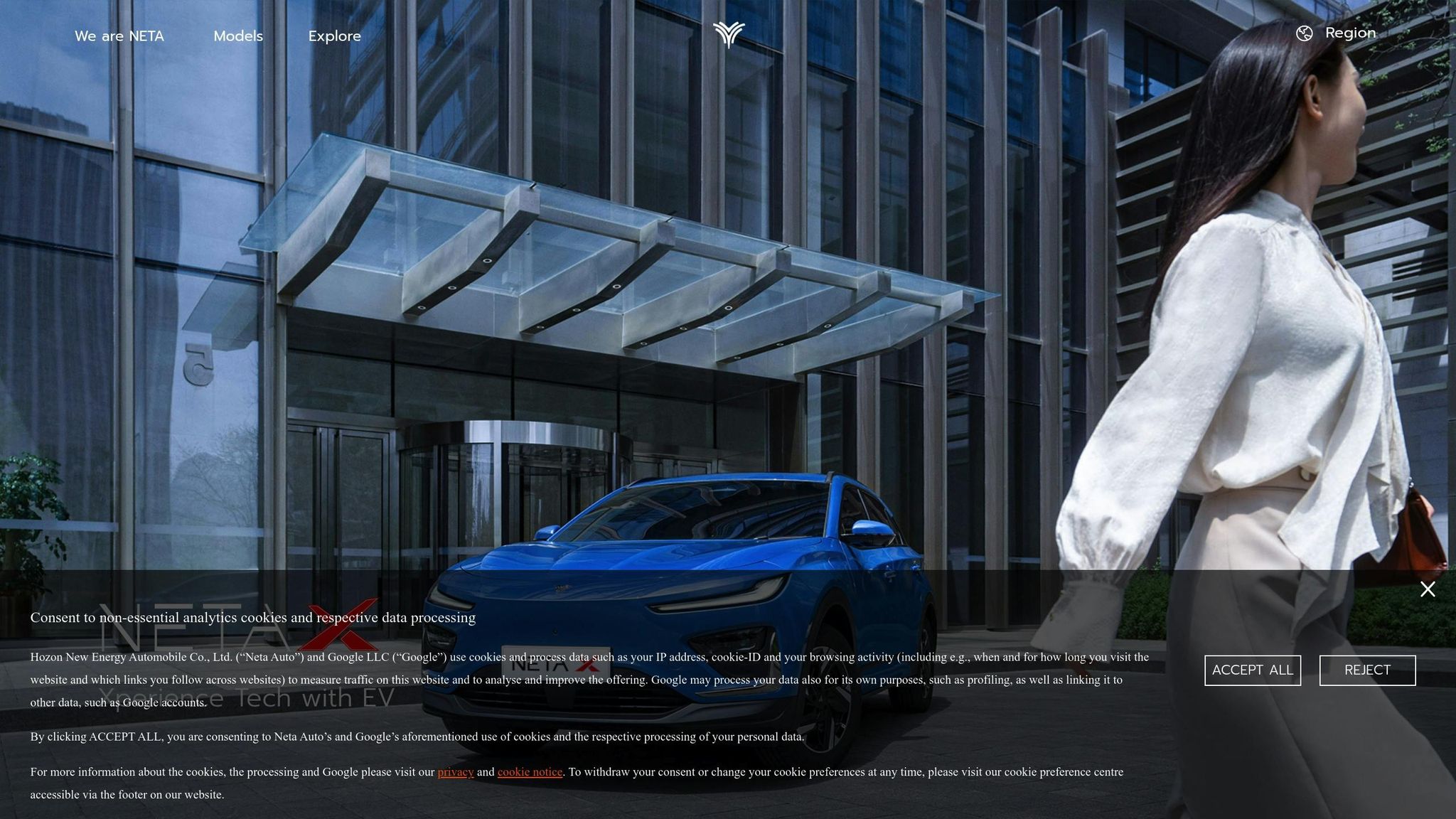
Neta electric cars are gaining attention in Kenya for their affordability and practicality. Starting at $5,880 for entry-level models and going up to $11,800 for higher-end options, these vehicles offer a budget-friendly way to transition to electric mobility. Designed for urban commutes, they are compact and efficient, making them ideal for crowded cities like Nairobi and Mombasa.
Key Highlights:
- Neta V: Tailored for taxi operators with leasing options starting at a deposit of just KSh 50.
- Neta X: Pricing in Kenya is yet to be confirmed, but similar models in China cost around 100,000 RMB (~$13,700).
- Range: Up to 249 miles (401 km) on a single charge for the Neta V.
- Challenges: Limited public charging infrastructure and modest highway performance.
Neta cars combine cost savings on fuel and maintenance with features like regenerative braking and energy management systems. However, potential buyers should consider the availability of spare parts and service support as the brand establishes itself in Kenya’s market.
For those seeking affordable electric vehicles, Neta offers a practical solution for daily city travel with an eye on the future of sustainable transportation.
Kenya’s NEWEST Electric Car? | NETA V Full Review and Features | EV COMPACT CROSS

1. Neta V

The Neta V is designed with Kenyan taxi operators in mind, offering an accessible leasing program to encourage the shift to electric vehicles. With a minimal deposit of just KSh 50, this program provides an affordable way for commercial drivers to embrace electric mobility. Up next, we’ll take a closer look at the Neta X, another model tailored for budget-conscious buyers.
2. Neta X

Price and Ownership Options
The official pricing for the Neta X in Kenya hasn’t been revealed yet. However, this electric SUV is anticipated to deliver a budget-friendly option for those exploring electric vehicles. For reference, in China, models like the Neta X and the BYD Yuan Plus are priced at around 100,000 RMB. This gives a glimpse of what Kenyan buyers might expect in terms of affordability and value.
sbb-itb-99e19e3
Advantages and Disadvantages
The Neta V and Neta X bring a mix of strengths and challenges to Kenya’s growing electric vehicle market. For buyers, factors like affordability, design, range, and performance are often top of mind.
One of their standout benefits is competitive pricing, which makes them more economical to own compared to traditional gasoline-powered cars. Additionally, their compact size makes them well-suited for navigating crowded cities like Nairobi and Mombasa, where parking and maneuverability are often an issue.
However, these models come with some trade-offs. As budget-friendly and compact EVs, they tend to have shorter driving ranges compared to higher-end alternatives. This limitation, coupled with Kenya’s still-developing public charging infrastructure – particularly outside major cities – can make longer intercity travel more challenging. Their efficiency-focused design also means acceleration and highway performance are modest.
Here’s a quick look at the pros and cons:
| Aspect | Advantages | Disadvantages |
|---|---|---|
| Cost | Lower operating costs and competitive pricing | Initial purchase price may still feel high compared to basic internal combustion engine (ICE) cars |
| Size & Design | Compact size ideal for city driving and easier parking | Limited cargo and passenger space |
| Range & Charging | Great for daily city commutes with home charging options | Shorter range and limited fast-charging infrastructure for longer trips |
| Performance | Quiet operation with efficient energy use | Modest acceleration and highway speeds |
| Market Position | Affordable entry point for early EV adopters | Developing service network and uncertain long-term resale value |
Although both models support home charging, the lack of a widespread public charging network could be a drawback for buyers who don’t have access to reliable home charging or who often travel beyond urban areas. This makes infrastructure a key consideration for potential owners.
Another factor to weigh is the service and support network. Since the Neta V and Neta X are relatively new to Kenya, buyers should consider the availability of spare parts, warranty support, and reliable maintenance services over the long term.
On the flip side, these EVs come equipped with modern features like regenerative braking, energy management systems, and integrated digital interfaces, which enhance convenience. However, first-time EV users may need a bit of time to get comfortable with these technologies.
Final Thoughts
As Kenya embraces greener transportation options, the Neta V emerges as a strong contender with its impressive range of up to 249 miles (401 km). This makes it a practical choice for both daily city commutes and occasional longer trips between urban centers.
The car’s compact design and efficient energy consumption make it well-suited for bustling cities like Nairobi and Mombasa. For high-mileage drivers and commercial operators, the significant savings on fuel and maintenance add to its appeal.
Kenya’s focus on sustainable and cost-effective mobility creates a promising market for vehicles like the Neta V. Early adopters could find themselves ahead of the curve as the country transitions to renewable energy and cleaner transportation options.
That said, potential buyers should weigh the financial uncertainties surrounding Hozon New Energy Automobile, the company behind the Neta V. While this doesn’t impact the car’s immediate performance, it could raise questions about long-term support and parts availability.
Overall, the Neta V offers an affordable and efficient solution for urban mobility and occasional intercity travel.
FAQs
What challenges come with owning a Neta electric car in Kenya, and how can they be solved?
Owning a Neta electric car in Kenya comes with its fair share of hurdles, including limited charging options, hefty upfront costs, and worries about battery longevity. But these challenges aren’t insurmountable – practical solutions can make a big difference.
For the charging infrastructure, one option is to invest in home or workplace charging stations. This can provide convenience while reducing reliance on public chargers. Additionally, pushing for the development of more public charging stations can benefit not just Neta owners but the broader EV community.
The high initial cost of purchasing an EV is another concern. Supporting initiatives for local electric vehicle manufacturing could help bring prices down over time, making EVs more accessible. And when it comes to batteries, sticking to a regular maintenance schedule and exploring warranty options can help ensure your vehicle remains dependable and efficient.
By taking these steps, owning a Neta EV in Kenya could become a more feasible and rewarding choice.
What is the Neta V leasing program, and how does it benefit taxi operators in Kenya?
The Neta V leasing program in Kenya presents taxi operators with an affordable route to electric vehicle ownership, eliminating the need for significant upfront costs. For around $30 per day, drivers can lease the Neta V, making it an accessible choice for those aiming to embrace more sustainable transportation.
This initiative offers multiple advantages, such as cutting down on initial expenses, benefiting from the lower running costs of electric vehicles, and playing a role in promoting cleaner urban air. It’s a practical and environmentally conscious option for taxi operators looking to participate in Kenya’s expanding EV market.
What should buyers know about spare parts and service support for Neta electric cars in Kenya?
When looking into a Neta electric car in Kenya, one key factor to think about is the availability of spare parts and service support. While Neta Auto is expanding its footprint in the region and advancing its technology, local access to spare parts and service centers might differ depending on your location.
Before making a purchase, it’s a good idea to verify the presence of authorized service centers and check if spare parts are easily accessible. Having dependable after-sales support is crucial to keeping your EV running efficiently and enjoying a hassle-free ownership experience in Kenya.




